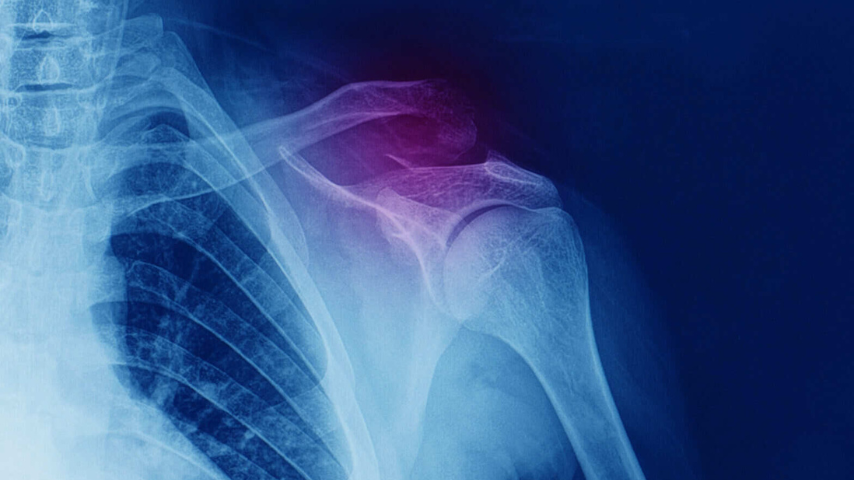AC Joint Shoulder Dislocation

What is acromioclavicular joint dislocation?
Acromioclavicular (AC) dislocation is a common injury, especially among sportsmen. There is still a lack of consensus on whether to conserve or operate type III AC joint dislocations. Even among surgeons inclined to operate AC joint dislocations, there is no unanimity on which surgical technique. There are a plethora of choices between mechanical fixation or synthetic materials or biologic anatomic reconstructions.
What is the most common Shoulder Dislocation type?
Below are shoulder dislocation types:
Anterior (forward). The head of the arm bone (humerus) is moved forward, in front of the socket (glenoid). This is the most common type of dislocation and usually happens when the arm is extended.
Posterior (behind). The head of the arm bone is moved behind and above the socket. This is an uncommon type of dislocation that is usually caused by seizures or electrical shock.
Inferior (bottom). The head of the arm bone is pushed down and out of the socket toward the armpit. This is the least common type of dislocation.
AC joint Separation Vs AC joint disruption?
AC joint Separation
AC joint disruption
An AC joint separation is the joint connecting the shoulder blade to the clavicle or collarbone rather than the humerus or upper arm bone. AC joint disruption usually results from a fall onto the point of the shoulder with subsequent disruption of the ligaments and muscular attachments stabilizing this joint
AC joint disruption usually results from a fall onto the point of the shoulder with subsequent disruption of the ligaments and muscular attachments stabilizing this joint.
The most common cause of AC joint separation is a fall onto the shoulder. With sufficient damage to the ligaments, the shoulder blade or scapula drops away from the clavicle, creating misalignment and giving rise to the shoulder bump.
AC joint disruption can cause swelling, bruising and pain in the shoulder. The tip of the shoulder joint (highest point) usually becomes more prominent than the opposite shoulder. The swelling is usually very tender to touch and could hear/feel clicking and clunking with shoulder movement.
Specialty usually recommends an X-ray of the shoulder. Unless the damage is relatively severe, the X-ray may not reveal anything.
Its diagnosis is made by a detailed medical history, physical examination and an X-ray. X-ray is usually performed to confirm the joint separation and rule out any fracture to the clavicle. X-rays of opposite shoulder and rarely CT scan may be needed in some cases.
How does acromioclavicular (AC) joint dislocation feels?
The junction, or joint, between the collarbone and shoulder is tender or painful. Tenderness is felt at the AC (acromioclavicular) joint site. Numbness or muscular weakness may be felt in the shoulder or arm, which is caused by damage to nerves. If this symptom appears, go to a doctor right away.
Risks, Symptoms & Signs of Shoulder Dislocation
Risk factors for AC Joint dislocation:
- Participating in contact sports or activities like rock climbing that expose you to falling
- Previous shoulder dislocation, chronic shoulder instability, or previous injury of the shoulder’s soft tissues
- Occupational exposure to fall
If you dislocate your shoulder, you probably will know it right away. The most common dislocated shoulder symptoms are:
- Immediate, severe pain
- Inability to move the arm
- Numbness or tingling in the shoulder area or down the arm
- Swelling
- Visible deformity of the upper arm
Signs of AC Joint Dislocation:
- Pain.
- Swelling.
- Bruising.
- Instability of the joint.
- Loss of ability to move the joint.
- Visibly deformed joint (bone looks out of place)
Shoulder Dislocation Causes
The most common causes of a dislocated shoulder are:
- Being forcefully struck on the shoulder, such as during a motor vehicle collision
- Falling on an outstretched arm
- Injuries related to sports activities, such as being tackled in a football game or falling while skiing
Shoulder Dislocation Diagnosis and Tests
Your doctor will examine the afflicted region for pain, swelling, or deformation in order to diagnose and test it. The displacement of your shoulder joint can be seen on an X-ray, as well as any fractures or other damage.
When to see a doctor specialist?
The injuries that cause separated shoulders can also cause bone fractures or concussions, you should see a doctor right away to either confirm a separated shoulder or rule out a more serious injury.
Treatments available for Dislocated Shoulder
At Gleneagles Hospital, Parel, Mumbai our specialist doctor may also recommend surgery or recommend physical therapy to strengthen the surrounding muscles and improve your range of motion as per the diagnosis test.
Recovery Time
It takes about 12 to 16 weeks to completely recover from a dislocated shoulder. You'll usually be able to resume most activities within two weeks but should avoid heavy lifting and sports involving shoulder movements for between 6 weeks and 3 months.
For any sports related injuries or conditions, consult our doctors at Gleneagles Hospital, Mumbai, Department of Arthroscopy & Sports Medicine.











